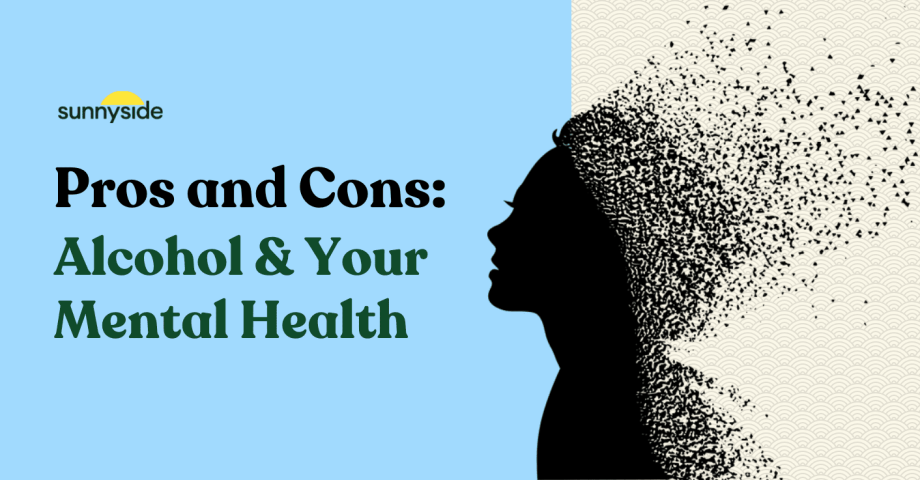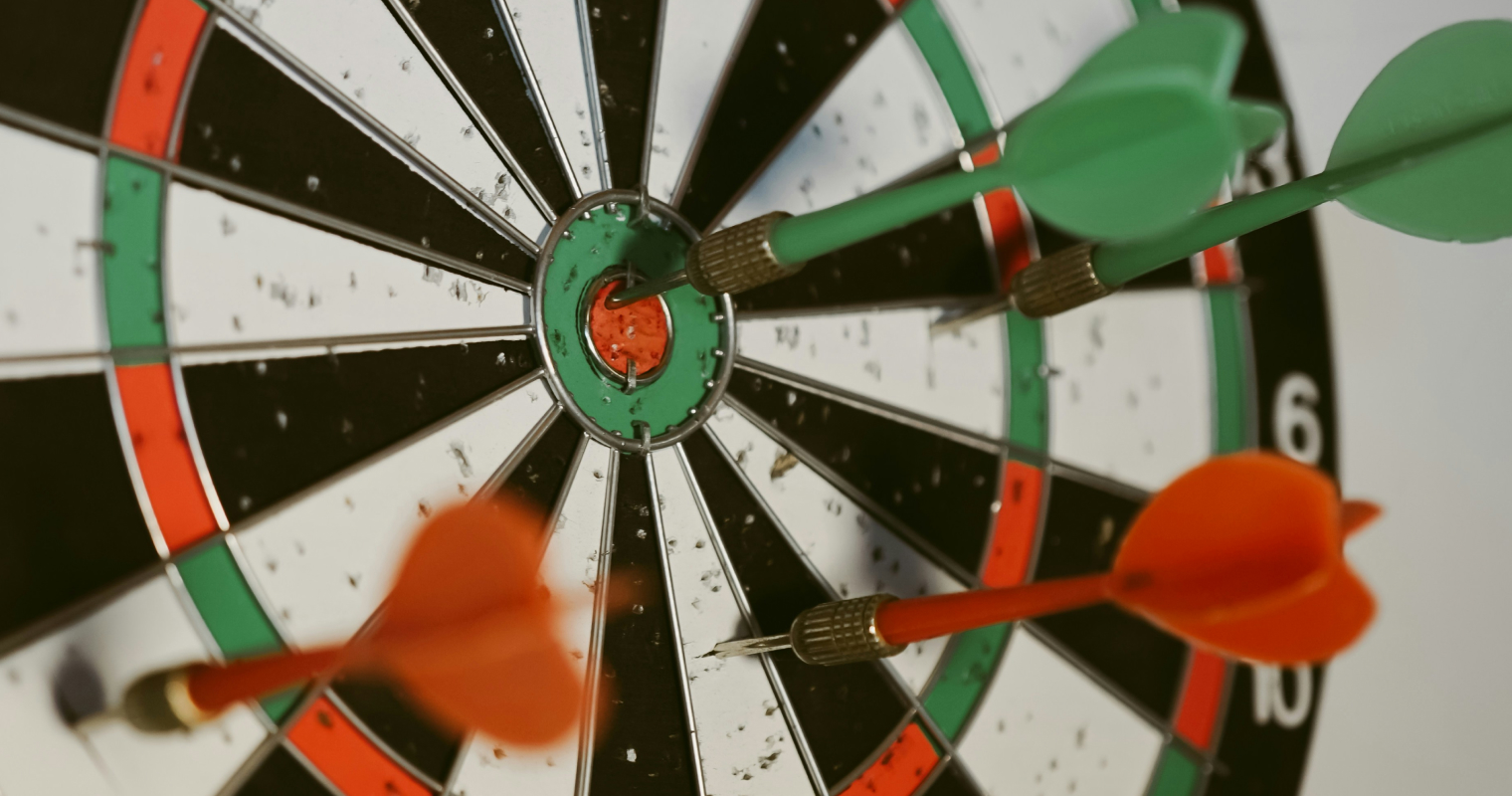Last Updated on May 25, 2023
Alcohol use and weekend hang-outs are a pairing that probably wouldn’t surprise you. In fact over 60% of the alcohol we drink takes place on the weekend.
We all want to get together with friends, relax, and enjoy a night out after a long week. And there can be great benefits in that — spending time with loved ones and having fun is healthy, after all.
But what happens when one drink turns to four, or more? Does alcohol still benefit your mental health? Read on to see what the pros and cons are with alcohol as it pertains to your mental health.
What Alcohol Does to Your Brain
Just after taking those first few sips, you might begin to notice warmth spreading throughout your body and a sense of calm. What’s going on in your brain to make this happen?
GABA
Alcohol quickly gets absorbed into the bloodstream and starts to affect the neurons in your brain that control your inhibitions and judgment. It also slows your breathing and heart rate, helping to make you feel calmer.
And after a drink or two, you’ll likely feel more carefree, confident, and chatty. That’s thanks to an increase in the activity of a neurotransmitter called gamma-aminobutyric acid (GABA). GABA is an inhibitory neurotransmitter that helps to slow down certain neurons in your brain, creating a sedative-type experience. So, at that moment, you’ll probably be feeling pretty good.
Glutamate
Alcohol can also inhibit the activity of another neurotransmitter called glutamate. Glutamate is an excitatory neurotransmitter that helps to increase brain activity. By inhibiting glutamate, alcohol can further slow down brain activity, which can cause impaired judgment, coordination, and other effects. That’s why after a few drinks, you tend to notice people getting sloppy with their ability to pour another or walk in a straight line.
Dopamine
One of the reasons why alcohol feels so good, at least at first, is an extra release of dopamine to your brain’s reward center. It gives you that feeling of euphoria, which is also what can lead to addiction. Your brain can easily begin to associate drinking with pleasure and only want more of it. This isn’t exactly conscious, either. You might reach for a glass of wine at 5pm, but what your brain just ordered is a shot of dopamine.
Gut-brain axis
Finally, the health of your gut microbiome directly affects symptoms of anxiety and depression. Your gut has a direct line to your brain and any imbalance that alcohol can cause affects how much stress you feel and how you respond.
Harvard calls your gut, “your nervous system’s second brain”, so it needs a healthy environment to flourish and work well. It’s no wonder that depression after drinking can happen if the gut is still recuperating after managing a heavy night.
Learn more here about how alcohol impacts your gut.Want to cut back on drinking?
The Difference Between Moderate and Heavy Drinking
The definition of moderate drinking means no more than one drink a day for women and two for men. How much you drink defines just how much you’ll be affected. Let’s take a closer look at the disadvantages and benefits of alcohol on the brain and body.
Moderate Drinking: Pros and Cons
Many people drink because of how a beverage might taste, how it pairs with food, and in some cases because a brewery just released a new product, but people also reach for alcohol because of how it functions as a social lubricant.
With light or moderate drinking, you can still enjoy a night out at a bar with friends and also get a great dopamine boost from socializing rather than the alcohol. You don’t have to depend on alcohol to take the edge off and can enjoy less severe negative effects from a night of drinking.
However, the Mayo Clinic says it’s important to weigh your risks and benefits with moderate drinking since it greatly depends on the individual. Many studies point out that some of the benefits found could include: a reduced risk of heart disease, stroke, gallstones, and diabetes. These reductions in risk of course depend mostly on your lifestyle and your current health. However, “Any potential benefits of alcohol are relatively small and may not apply to all individuals.”
So if you want to have more pros than cons from moderate drinking you also need to focus on living a healthy lifestyle, like eating well and staying active. It could simply be that these healthy actions help to offset the negative effects of alcohol, as well. A bit of light and moderate drinking can benefit your mental health if overall, you enjoy yourself, and don’t overdo it.
Heavy Drinking: Pros and Cons
The Harvard School of Public Health says “It’s safe to say that alcohol is both a tonic and a poison. The difference lies mostly in the dose”. So while moderate drinking may have some benefits, heavy drinking is another story.
If you start having more than the recommended one a day, or two for men, alcohol can affect a range of cognitive and behavioral health issues. It can alter your brain’s structure and cells, which might lead to mood disorders along with memory, learning, and decision-making problems.
Overall, alcohol’s long-term effects on the brain don’t have any pros when associated with heavy drinking. Of course, the initial motivator to drink a lot might be that feeling of euphoria and enjoying a night free from worry. But the issue comes when it’s used to escape whatever difficult emotions you might be feeling. The depressant effects of alcohol on the brain and body catch up and don’t do your mental health any favors.
The Loop Between Drinking and Mental Health Issues
It’s become ingrained in our culture to reach for something external to make us feel better during stressful times. But comfort can come internally and through healthy coping methods. It just takes some time to train your brain to accept and welcome negative emotions instead of avoiding them.
While some of our individual families may try, many of us weren’t raised in a culture that taught emotional intelligence and communication, so the responsibility lies on us as adults to learn new ways to cope. It could be stress, boredom, or just old habits that keep you drinking more than you’d like. If you want to learn your triggers, you can begin to track what happened in your day along with how many drinks you had. After a week or two, you might be surprised to see how many little things affect your drinking habits, from a bad night’s sleep to a fight with a loved one.
Once you learn why you’re drinking more, you can begin to plan how to overcome those obstacles. It might be by becoming more physically active to release tension, socially active to reduce loneliness, or trying a new hobby to feel less bored.
So while current feelings of anxiety or depression might make you lean towards a drink — just know, it’s a craving and a habit that can change.
Can Alcohol Cause Depression?
It’s common to feel depressed after drinking, but fortunately, the risk decreases when you stick to light or moderate drinking. Heavy drinking, on the other hand, can exacerbate symptoms and lead to mood disorders like anxiety and depression. The mood effects can happen long-term, or even right after its initial calming effects wear off. Hence the term, hangxiety.
Does Alcohol Make You Depressed and Anxious?
Alcohol can create and exacerbate symptoms of anxiety and depression. Of course, this can lead to a cycle of turning to alcohol when upset. But the good news is that with training and professional support, it’s a cycle you can disrupt. As you start to develop new coping techniques, you’ll slowly be able to wean your brain off of viewing alcohol as a relief.
That’s why seeking out a mental health professional and joining communities of support and encouragement, like Sunnyside, is so important. Alcohol and depression go hand in hand, but if you train your brain to associate pleasure with things besides alcohol, you’ll have an easier time avoiding it when upset. Remember — you can always create new pathways of pleasure that don’t depend on alcohol.
Read to say goodbye to hangxiety?Alcohol’s Physical Effects on Your Mental Health
The neurochemical effects of alcohol aren’t the only way your mental health can be altered. The physical side effects can create a domino effect that makes managing symptoms of anxiety or depression more difficult.
For example, these are some of the physical side effects of heavy drinking:
- Dehydration and headaches.
- Worse quality of sleep.
- Increased fatigue.
- Poor food choices.
- Gut or digestive problems.
- Inflammation leading to exacerbated chronic health symptoms, or general aches and pains.
Naturally, if you’re feeling terrible physically, you’re going to have a harder time managing stress or any mental health condition. And it’s all too easy to feel depressed after drinking when you’ve got a pounding headache and an exhausted body.
So all these physical symptoms can exacerbate or even lead to anxiety and depression. We also all know the importance of sleep, healthy nutrition, and movement on our mental health. If we start skipping workouts or ordering takeout because we’re too tired, it can spiral into an unhealthy lifestyle pretty quickly.
How to Reduce the Risks of Alcohol and Improve Your Mental Health
There are always actions you can take to help your mental health. Research shows that recovery from mood disorders like anxiety and depression is high for those that try following these lifestyle habits:
Mindful Drinking
Mindful drinking can mean many different things. The idea is to slow down and pay attention, without judging yourself, and noticing how you feel. These are some ideas to keep in mind:
1. Make a plan before you begin.
- Think about your day, week, or month — what do you think would make a healthy and reasonable goal of drinks consumed?
- What kinds of drinks or situations have a negative effect on you? How can you avoid them?
- You can take Sunnyside’s 3-min quiz to build your own personalized drinking plan.
2. Drink more slowly.
- Try sipping your drink or pouring less to get used to smaller amounts.
3. Take breaks to hydrate.
- Try to alternate every alcoholic drink with a glass of water.
- Give yourself a time when you’ll stop drinking or at least give yourself a breather.
4. Pay attention to how your body is responding.
- Notice if you get a rise in anxiety after the initial rush of calm. What’s happening in your body? How’s your stomach feeling?
- The more you pay attention, the easier it will become to notice any negative effects and take care of yourself.
5. Avoid alcohol when you’re stressed or anxious.
- Create a list of go-to stress-relieving activities that are easy to do and manageable.
- For example, you could call a friend while going for a walk, roll out the yoga mat, or put on an intense dance workout video or music to release the tension.
6. Eat a healthy meal beforehand.
- Getting some food in your system is a great way to slow down the absorption of alcohol into your bloodstream.
- Try to make it healthy and nutrient dense with fiber and protein, since they slow down the absorption of sugar into your blood.
- If you didn’t eat beforehand, try to grab some snacks and eat with your drink.
7. Practice self-compassion.
- We’re wired to work best with encouragement and kindness. Just think of a baby learning how to walk — you wouldn’t yell at them when they fell, would you? We’re all still learning how to change and grow, no matter our age, and we need to give ourselves patience and compassion as we try to move forward.
- Science shows that practicing self-compassion offers you the best chance of success, with people who are highly self-critical often suffering from anxiety, depression, or eating disorders.
Healthy Habits to Adopt
Other ways you can improve mental health and stop the cycle of alcohol as a catalyst for worsening mental health are as follows:
Nutrition
- Adding more nutrient-dense foods to your day can increase your energy levels and help stabilize your hormones. That means you’re less likely to experience intense mood swings and be better able to handle stress.
- Try adding a probiotic specific for mood and a multivitamin that includes B vitamins since they’ve both been proven to be essential for decreasing anxiety and depression.
- Think of easy ways to add more nutrition to your day, such as an extra serving of veggies to your dinner or fruit and nuts as a snack.
Exercise
- Sitting all day and living a sedentary lifestyle is more likely to make us anxious and depressed. Our bodies were built to move, and sitting still while you’re anxious is a bit like leaving the lid on a pot spilling over with boiling water.
- Aim for 150 minutes a week, spread out as you wish. But if you’re feeling particularly anxious, research shows high-intensity workouts can help release tensions and boost those much-needed feel-good neurochemicals like endorphins and dopamine.
Sleep Hygiene
- We all know how terrible it feels to get just one night’s bad sleep — we’re cranky and quick to snap at others. While a bad night’s sleep is manageable now and then, it’s important to do what you can to try and get as much good quality sleep as you can. That means;
undefinedundefinedundefined
Social Support
- It’s human nature to need a community — it helps us feel safe and cared for. The more isolated we become, the more difficult it gets to manage our mental health.
- Look for ways to reach out to friends without alcohol involved. Try setting up activities like going for hikes, walks, art, dance, yoga classes, etc.
Professional Support
- A trained professional can be priceless when it comes to improving your mental health. They can help teach you ways to cope, specifically for your history and lifestyle.
- A more economic option would be attending support groups, where you can still learn new coping techniques and feel a part of a community.
Tools and Apps
- Staying connected with regular motivation straight to your phone is a great way to get that added help you need. Reminders, communities, and chat support can make a world of a difference.
- Check out different mindful apps, like Sunnyside or Calm. As well, you can look into productivity apps, like Todoist and Brain.fm to focus or meditate with music.
These actions can all reduce symptoms of anxiety, depression, and other mental health issues. But while it’s a long list, it doesn’t have to be overwhelming. Building a habit works best when you choose one small goal to focus on at a time, which is exactly what Sunnyside can help you do. For instance if you have a weight loss or fitness goal, you’ll work on a plan around achieving your goal. The same goes for cutting back on alcohol. A goal and plan will help you make measurable progress in your journey.
Change your drinking habitsSunnyside and Mindful Drinking
Sunnyside aims to be a 360 support system that helps you:
- Set realistic goals
- Track your drinking
- Get pressure-free support
- See how cutting back improves various parts of your life
- Talk with professional coaches
- Become a part of an encouraging community
Using the science behind habit change and recording your habits while staying engaged with a community can help you reach your goals. Give the quiz a try and see how Sunnyside can work for you.
Take the 3-min quiz



